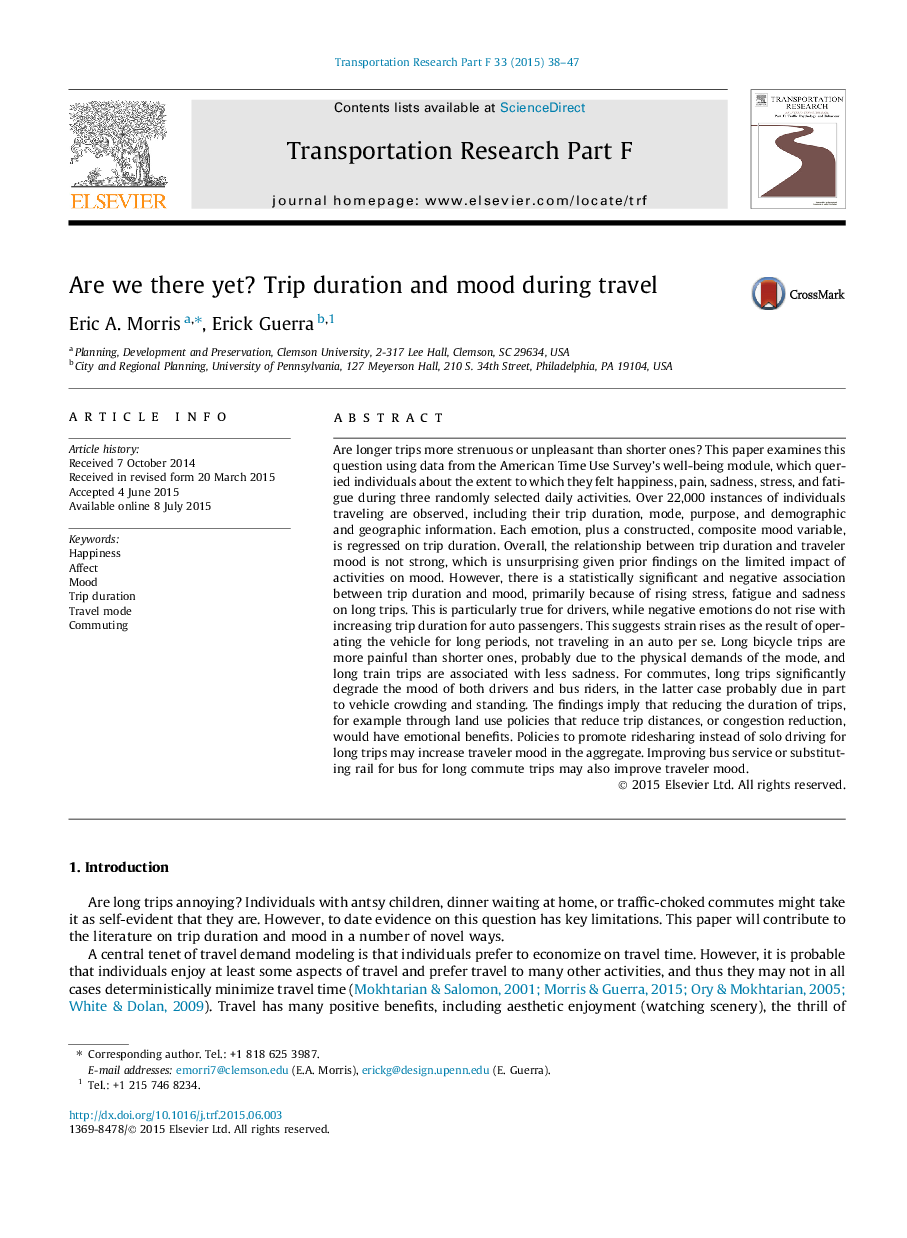| کد مقاله | کد نشریه | سال انتشار | مقاله انگلیسی | نسخه تمام متن |
|---|---|---|---|---|
| 897614 | 1472450 | 2015 | 10 صفحه PDF | دانلود رایگان |
• Trip duration affects mood and emotions significantly but weakly.
• Fatigue, pain, stress and overall mood are worse on longer trips.
• Long trips degrade drivers’ emotions but probably not those of auto passengers.
• Long bicycle trips involve more pain.
• Long-duration bus commuting is deleterious for mood.
Are longer trips more strenuous or unpleasant than shorter ones? This paper examines this question using data from the American Time Use Survey’s well-being module, which queried individuals about the extent to which they felt happiness, pain, sadness, stress, and fatigue during three randomly selected daily activities. Over 22,000 instances of individuals traveling are observed, including their trip duration, mode, purpose, and demographic and geographic information. Each emotion, plus a constructed, composite mood variable, is regressed on trip duration. Overall, the relationship between trip duration and traveler mood is not strong, which is unsurprising given prior findings on the limited impact of activities on mood. However, there is a statistically significant and negative association between trip duration and mood, primarily because of rising stress, fatigue and sadness on long trips. This is particularly true for drivers, while negative emotions do not rise with increasing trip duration for auto passengers. This suggests strain rises as the result of operating the vehicle for long periods, not traveling in an auto per se. Long bicycle trips are more painful than shorter ones, probably due to the physical demands of the mode, and long train trips are associated with less sadness. For commutes, long trips significantly degrade the mood of both drivers and bus riders, in the latter case probably due in part to vehicle crowding and standing. The findings imply that reducing the duration of trips, for example through land use policies that reduce trip distances, or congestion reduction, would have emotional benefits. Policies to promote ridesharing instead of solo driving for long trips may increase traveler mood in the aggregate. Improving bus service or substituting rail for bus for long commute trips may also improve traveler mood.
Journal: Transportation Research Part F: Traffic Psychology and Behaviour - Volume 33, August 2015, Pages 38–47
